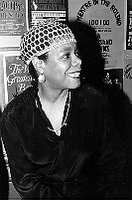I was brought up surrounded by books. As far back as I can remember, books were everywhere in the house, in school, even the Presbyterian church that I attended since I was five. I love reading. By jolly, I do!
My cousin Alinna is 6 years older than I, and being the only child, she was pampered with all she desired. I believe she loved reading too – she had more books than I had clothes in my wardrobe! When she grew older, my siblings and I were at the receiving end of her treasures. I didn’t care about anything else but the tonnes of books which packed my father’s bookshelves in the living room, spilling over to the dining area that we had to buy a bigger cabinet and bookshelf to store them (I was of course happy as a bee).
Besides studying hard, participating in sporting championships in school, playing myself crazy in the evening with my dad and the neighbourhood kids, I was reading all the time. I did not go a day without a book in my hands (no kiddin’!). I especially love lying on my bed reading (a bad thing to do – my vision is badly impaired because of that and there’s no point crying over spilt milk). I read every book that Alinna passed on to my family – Enid Blyton, Alfred Hitchcock, Nancy Drew, Roald Dahl. Reader’s Digests. I love those hot sunny after school afternoons where after a quick lunch and bath, I’ll leap onto my bed (literally!) with a book in hand, all ready to devour and drool all over the yellow stained pages. Dad was very pleased that his little daughter loved reading and he used to come to my bedroom - first he would smile, then he would enquire which page of the book I was at, and then he would ask me when do I reckon I would finish reading the book, and I would tell him in a day or two and I would make sure I kept my word. And I did.
At fourteen, he bought over from Alinna her entire collection of The Times Encyclopedia (I have never finished reading them all – I only like 2 of them – one on Space, and the other on the Mind). Now that I’m much older, I feel bad at not having fully utilised the entire collection that my Dad paid good money for, thus I make it a point whenever I go back home to visit my parents, to read a little if not glance through the pages of some of the other topics.
Love strikes quickly and fatally. I fell in love and never out since – with Penguin’s Classics – great literature by my all-time favourite English writers – Charles Dickens, Mark Twain, Robert Louis Stevenson. I would say it was literature pieces like A Tale of Two Cities, Great Expectations, David Copperfield, Oliver Twist, The Adventures of Tom Sawyer & Huckleberry Finn that left a deep imprint in my soul and etched an innate longing for English products – books, movies, songs. You’ll probably find this an exaggeration, but please trust my integrity – I read The Adventures of Tom Sawyer over 20 times, averagely 4 times a year. I had no sense of boredom reading the adventurous and often mischievous Tom Sawyer trading junks for pearls with his richer, snobbier but dumber friends. If you ask me, Tom Sawyer makes a mighty good businessman!
Sometime later a friend recommended Christopher Pike’s fiction/mystery novels – a whole series of ‘em to get you imagining monsters and believing that chain letters were real. I started checking out John Grisham’s legal thrillers in poly because I majored in law (duh!).
Looking back, I was a more rampant reader. I devoured any book that came within sight. I borrowed books extensively – from libraries of all sorts – school library, church library, public libraries, friends’ libraries. Now I am a more picky reader. I read less and from a narrower range of topics – mostly autobiographies, cultural stories and Black American experiences. I feel for the sufferings of the characters and I empathise with the injustice inflicted upon the weaker ones.
I love to read. And I want to translate my reading (input) into writing (output). I dislike being distracted from what I’m meant to do. Here's a list of distractions that has won me over too many times. It’s adapted from Jane Schneeloch's poem, an amateur writer trained in well-known writing teacher, Pat Schneider’s Amherst workshop.
WRITING TIME
I stop writing
to check my email
to make a cup of coffee
to read the mail
to put a load of wash in
to play a game of Minesweeper
to straighten out the piles on my desk
to pluck my eyebrows
to cut my nails
to call my mother
to pay a bill
to text a long lost friend
to get another CD to play
to transfer pictures from my handphone to my laptop
to buy lunch
to watch Discovery Travel & Living
to watch the news
to read the newspapers
to take a nap
to dry the clothes
to shut off the computer
and wonder where
I will find time
to write great things.
So don’t be surprised the next time you find me missing from writing for days and weeks on end. The above list is the reason why.
P/S: This must be the longest post I've written and published thus far. And I'm only doing so to prove a point - strike while the iron is hot - I got to write while I can before I start losing my heart to a thousand other "important" to-do things.





